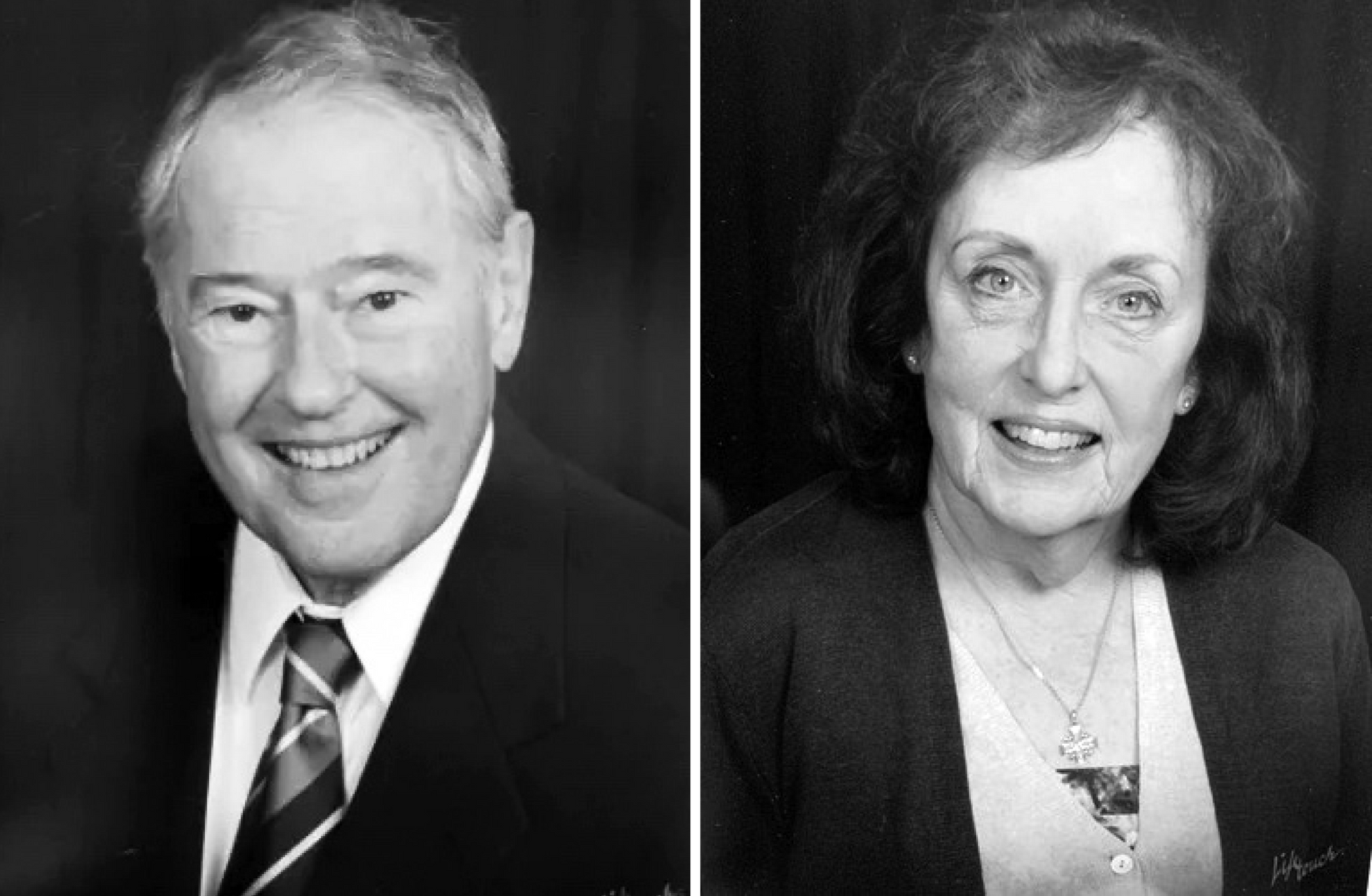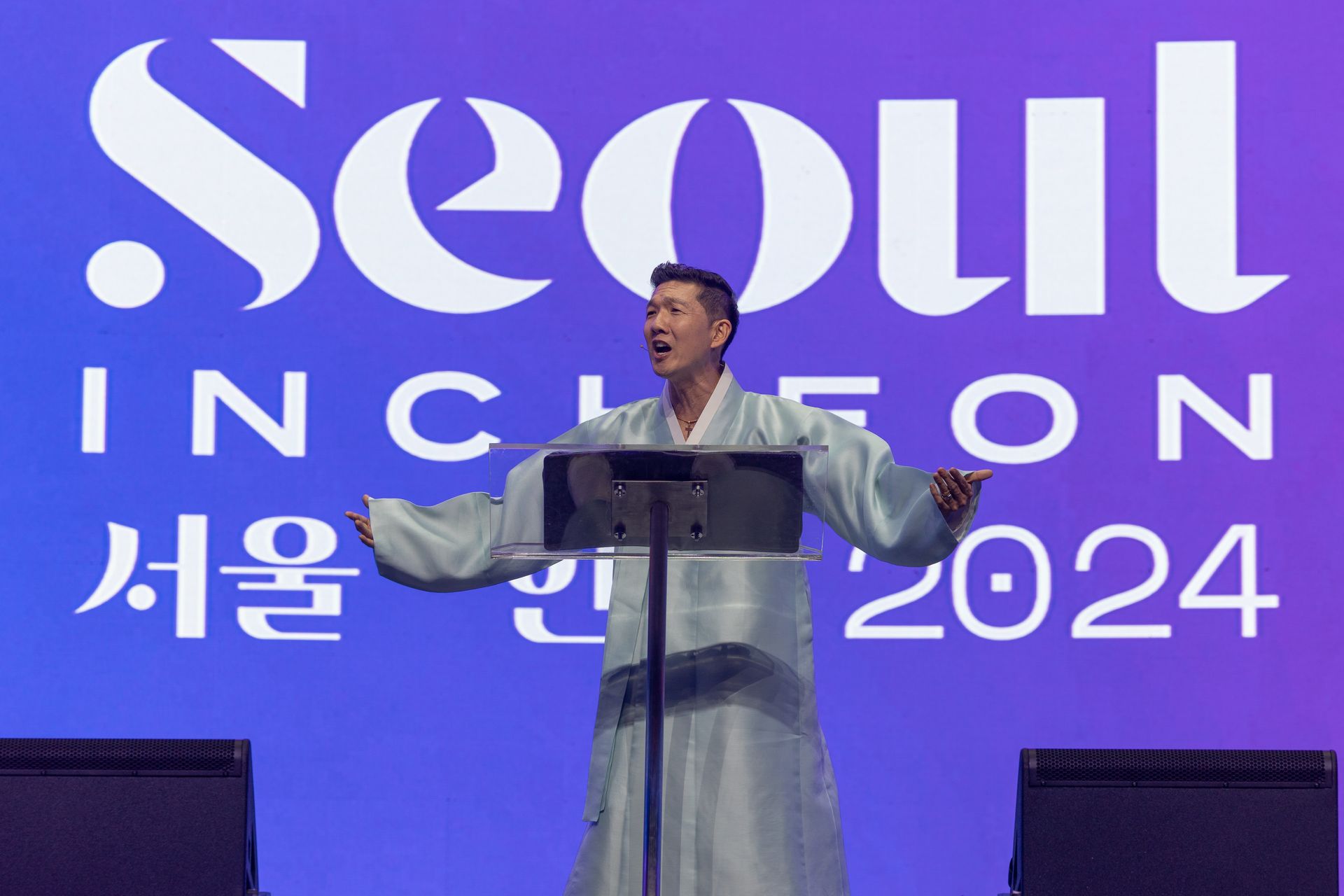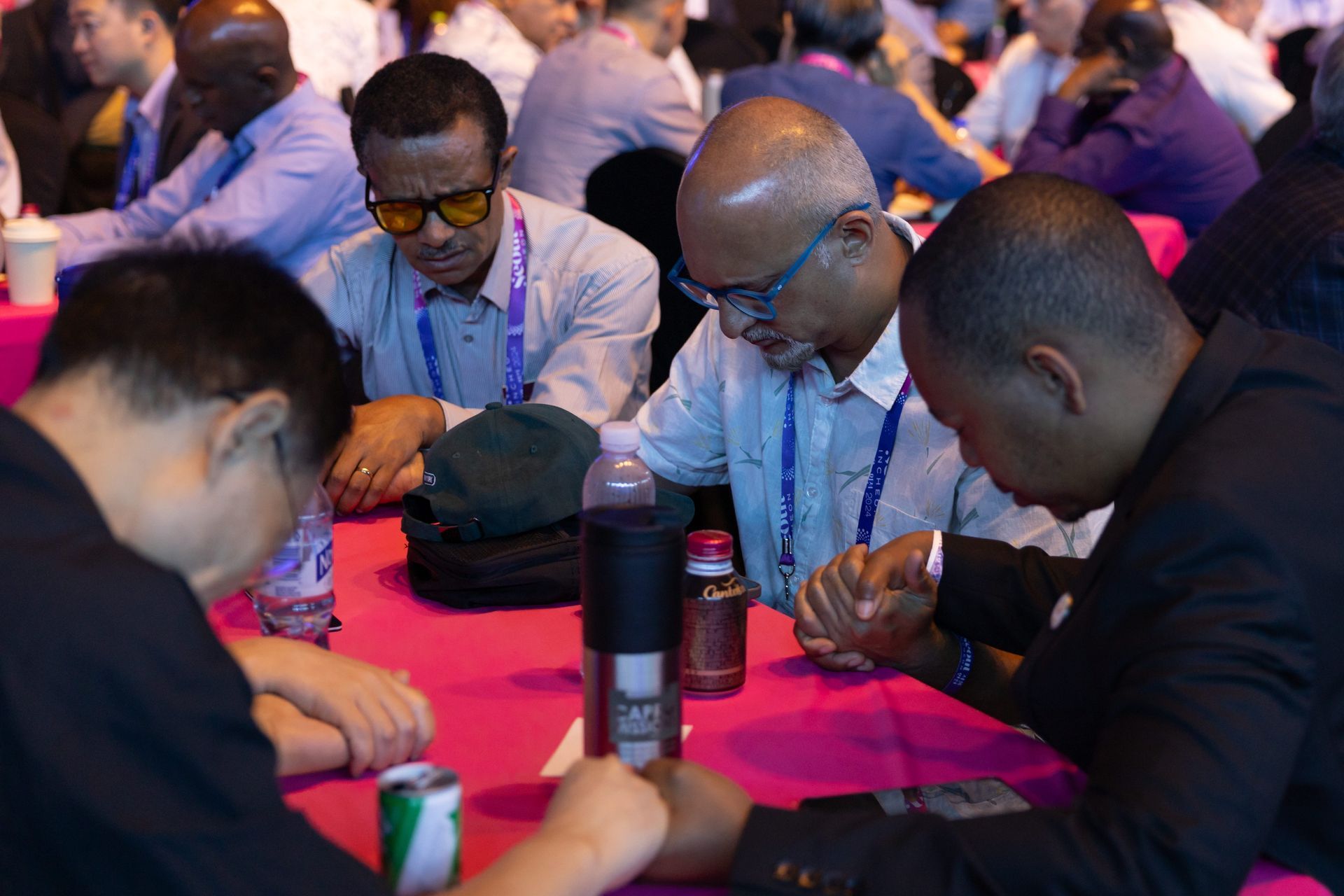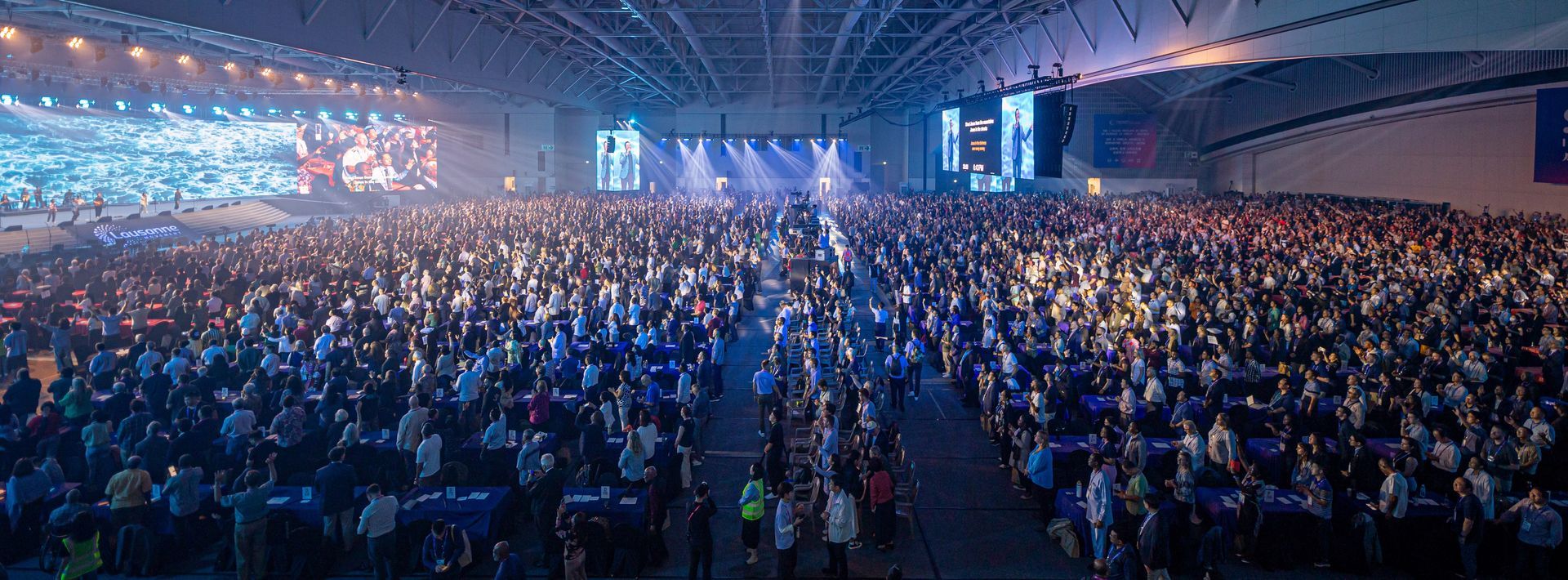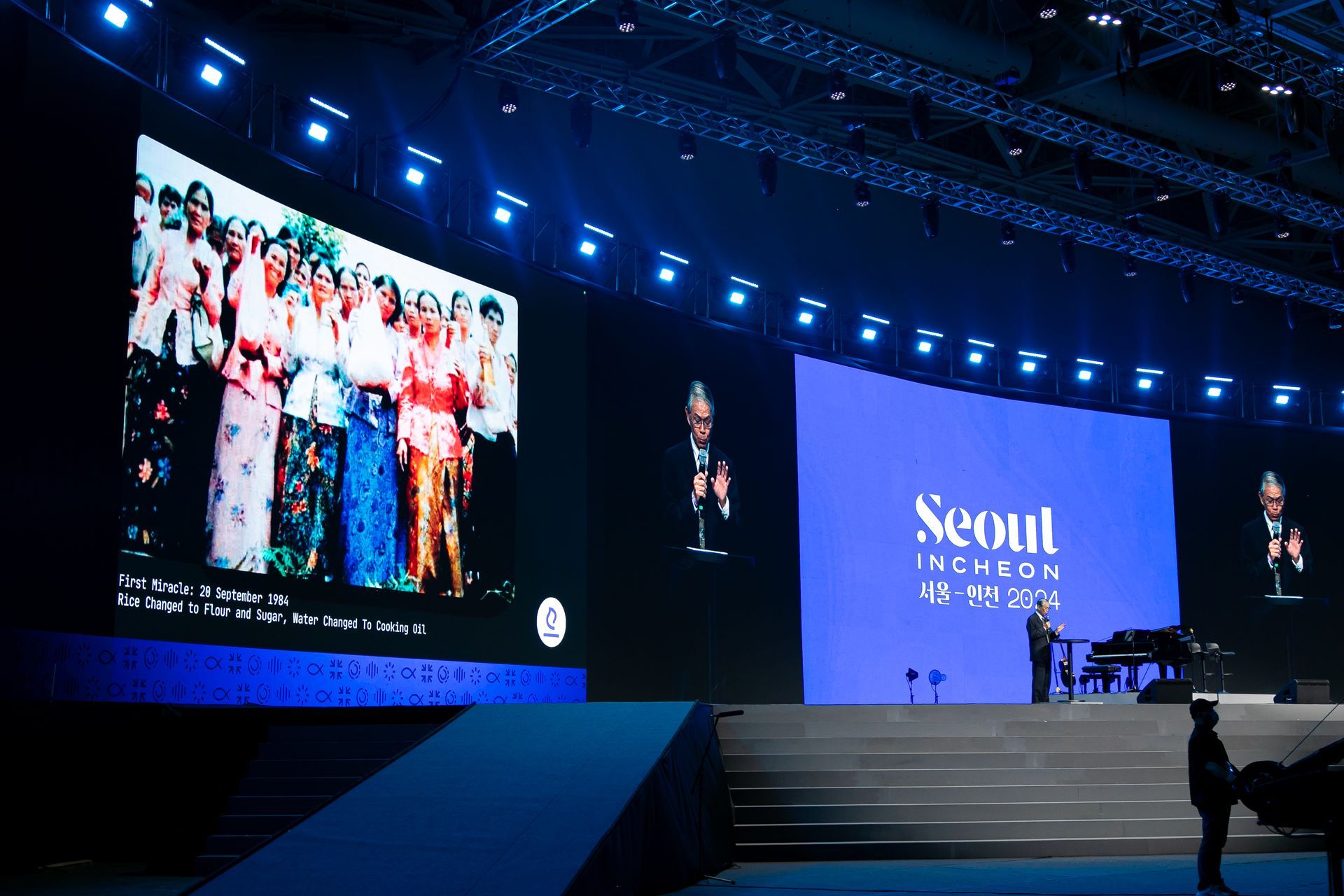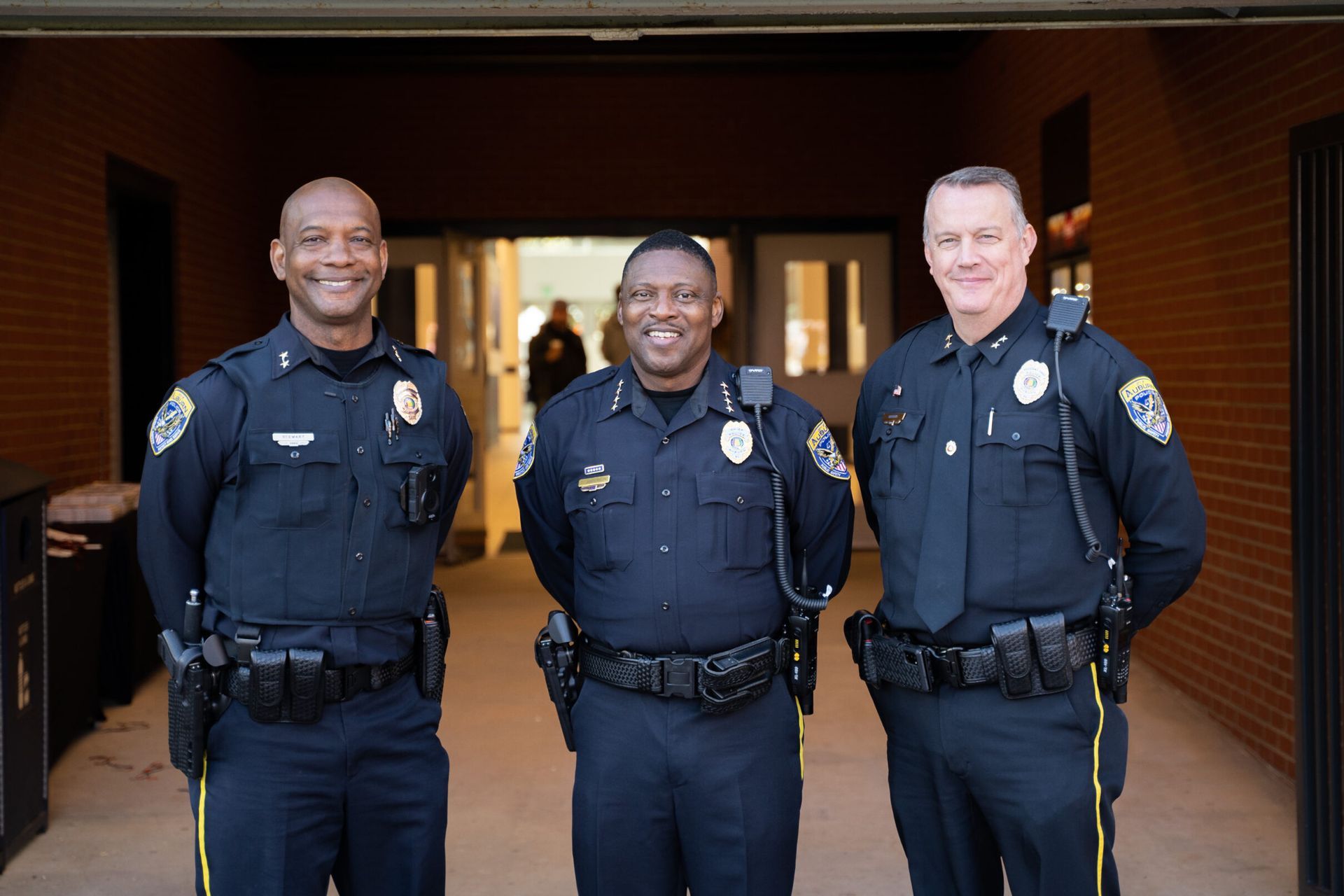Hoffman Rhyne, President & Academic Dean of Christ Our Redeemer Seminary
During the middle of the Fourth Lausanne Congress, a friend from the States texted me asking how it was going. I replied, “The content has been good, but the context has been incredible.” Over the next four blog posts, I want to share four aspects of the context that deeply impacted me. The first contextual aspect was the Congress setting: Incheon, South Korea.
The Significance of Incheon, South Korea
The Congress was held just out of Seoul, South Korea, in the city of Incheon. Far from being a random location, this was the entry point of Protestant Christianity into Korea. American missionary Horace Allen arrived in Incheon in 1885. By the turn of the century, Christianity had made modest progress, and about 1% of the Korean peninsula claimed faith in Jesus Christ. What happened next, though, set Korea on a path to becoming known as the “Jerusalem of the East.”
Revival broke out in 1907
in Pyongyang when Pastor Kil Sun-ju confessed personal sin to his congregation. It sparked a movement of repentance, Bible study, evangelism, and missions. As one Korean pastor reflected,
“The fervent repentance of the missionaries and church leaders was the main catalyst for this revival, which attracted many new believers and enabled its spread across the country.”
Today, there are about 9.3 million Protestant Christians in South Korea (~18% of the population). What is more impressive is that there are about 35,000 Korean missionaries,
most of whom serve in the 10/40 Window among unreached people groups.
That’s one missionary for every 266 Christians. By comparison, in the U.S., there are about 84 million evangelicals (~25% of the population) and 135,000 missionaries (across all denominations). This amounts to one missionary for every 622 evangelical Christian. According to the
Lausanne State of the Great Commission Report, only three percent of international missionaries go to the unreached. Most go to already evangelized areas. The Church in Korea sends more missionaries per Christian and focuses missionary efforts more on the unreached.
It was entirely fitting, then, that in this era of
polycentric Christianity
and
polycentric missions, the Fourth Lausanne Congress would take place in Incheon - a city that so clearly exemplifies the Spirit’s work of transforming a former mission field into a mission force. Reverend
Jaehoon Lee, Pastor of Onnuri Community Church, welcomed the 5,200 participants on the opening night, saying,
“This historic city was the entry point of early Protestant missionaries who brought the good news of the Gospel to this country. And now, here we are. Join me in prayer throughout this week that God will do an amazing work of His grace as we humbly and sincerely work together for His glory and for the good of the global church.”
The Hospitality of the Church in Korea
The significance of the setting wasn’t just about where, but who served as the host - the Church in Korea. Asian culture is known for hospitality, but this was something altogether different. The hospitality of these Korean Christians began long before the Congress began and was born in the secret place of prayer. For well over a year, Korean Christians had been praying and planning to care for us down to every last detail. If you’ve ever experienced Korean Christianity, you know that when they pray, it is with fervency, and when they plan, it is with precision.
Additionally, for months leading up to the Congress, over 200 churches in Korea collaborated to preach the same sermon series through the book of Acts. One senior Korean pastor said this coordinated sermon series fostered a new unity among Korean churches and leaders. This isn’t just beautiful but missionally powerful. Who knows what will come from that committed display of the Church’s unity under Christ’s lordship!
During the Congress, over a thousand Korean volunteers greeted us every morning with smiling faces and blessings and sent us home every night with the same. All during the day, they set up, rearranged, fed, cleaned, and much more I’ll never know about. Feeding 5,200 people lunch and dinner within one-hour time slots every day was a logistical tour de force. It reminds me of Jesus’ words when he said, “Whoever believes in me will also do the works that I do; and greater works than these will he do,” because while Jesus fed the 5,000 once in his earthly ministry, they fed the 5,000 twelve times that week! And they did all this with such a sweet spirit of joy and thankfulness, reflecting their dependence on the Spirit and welcoming love of our Father.
The Humility of the Church in Korea
Lastly, on the fifth day of the Congress, we witnessed a moving performance celebrating the 140-year history of the Church in Korea, from its humble beginnings to becoming a missionary-sending country (you can watch it here). Far from a self-congratulatory triumphalist tale, they humbly shared about God’s victories despite their failures and shortcomings, past and present. As missiologist Timothy Tennent shared on his blog, “It was one of the greatest expressions of transparency and humility I have seen in a major global gathering like this, and I will never forget it.” Through their Christlike hospitality and genuine humility, our Korean brothers and sisters made a lasting impression on me and many others. They served as an example for the global Church to follow.
In my next post, I will share how this global gathering powerfully previewed the end for which Christ died.
Next Quarterly Seminar: Following Lausanne - Implications for Us
I believe that there are several important lessons we can learn from Lausanne that have implications for the Church in our community. I plan to share these at our next quarterly seminar on Thursday, November 14th, 10:30 am - 2:00 pm. Please join us to consider working together to increase our participation in God’s global mission. Click here to register.
In the meantime, check out my previous
blog post
and a recent
podcast episode
about Lausanne.
